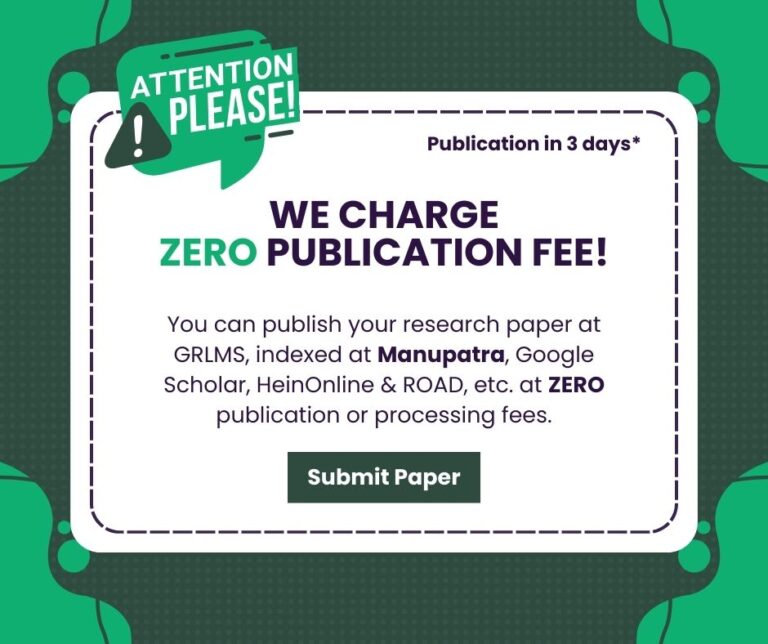- Introduction
The Supreme Court’s decision in G.J. Raja v. Tejraj Surana[1] has significant implications for lending institutions, potentially jeopardizing their interests. The court in this case held that Section 143A of the Negotiable Instrument Act, 1881 is to be applied prospectively. This means that it would only affect actions taken after its enactment, limiting its application to future credit transactions. This judgment has raised substantial concerns within both the legal and financial domains. In light of these consequences, this comment aims to critically analyse the Supreme Court’s decision and argue that Section 143A should be applied retrospectively. I will demonstrate that this judgment is erroneous in law, and a retrospective application of the statute is not only legally sound but also more aligned with the broader objectives of the Amendment Act, 2018.[2]
The complaint, in this case, was initiated in 2016, alleging the offence of cheque dishonour, punishable under Section 138 of the NI Act. Importantly, this was prior to the 2018 amendment that introduced Section 143A. During the proceedings, the trial court applied Section 143A retrospectively and ordered the drawer to pay interim compensation at a rate of 20%. Upon appeal, the High Court reduced the compensation rate to 15% but upheld the trial court’s decision. Subsequently, the case reached the Supreme Court, where the court deliberated whether Section 143A should be prospective or retrospective. The Supreme Court overturned previous rulings and held that Section 143A has prospective application as it introduces new liabilities and obligations for the concerned parties.
- The Legal Principle and Court’s Interpretation
In reaching its decision, the court drew upon a well-established legal principle, culled out in the case of Hitendra Vishnu Thakur v. State of Maharashtra.[3] This principle states that a statute, which not only alters procedural aspects but also establishes new rights and liabilities, should be interpreted as having prospective effect unless there is express or necessary intendment to the contrary. Applying this principle, the court observed that Section 143A, which introduces the provision of interim compensation, imposes new liabilities and obligations upon the drawer and thus held it to be prospective. However, it is important to note that the court did not delve into the latter part of Hitendra Vishnu Thakur’s principle, which pertains to the legislative intent behind Section 143A.
- Legislative Intent
Although there is no express mention of the retrospective intent in Section 143A, the court should have acknowledged the circumstances under which the statute came into being. The freedom of the legislature to express its mind in any form cannot be restricted or reduced to words of the statute. The Supreme Court has also held in National Agricultural Co-operative Marketing Federation of India Ltd. v. Union of India[4] that even in the absence of such an express provision if the intention of the legislature is made clear in some known way, the courts should take it into consideration while adjudicating its temporal application.
In order to ascertain the legislative intent in Section 143A, the objects of the NI Amendment Act, 2018 must be considered. This act, which inserted Section 143A and Section 148 to the NI Act, has been examined by different courts in multiple judgements. In the case of Surinder Singh Deswal v. Virender Gandhi,[5] the bench, while holding Section 148 to be retrospective, noted that the statement of objects accompanying the amendment highlights its goal of addressing undue delays in the resolution of cases under Section 138. Its objective was to provide relief to payees of dishonoured cheques and discourage frivolous litigation. Evidently, the legislature’s primary focus was on alleviating the burdensome backlog of cases, rather than solely expediting future cases. This intent was further acknowledged by the Karnataka High Court in V. Narasimha Murthy v. Santhosh J.[6] The court, recognizing the NI Amendment Act as ‘beneficial legislation,’ implied its retrospective application by necessary implication.
While the G.J. Raja bench relied on Surinder Singh Deswal, it did so selectively, using it to only draw distinctions with the present case. The bench reasoned that Section 143A imposes a significantly more severe liability compared to Section 148 and that is why it should be prospective and not retrospective. However, the issue is that the bench did not consider that Surinder Singh Deswal was not determined based on the severity of the liability imposed. Instead, it adopted a purposive approach, considering the content of the amendment’s statement of objects as the foundation for its judgment.
Therefore, Section 143A being the part of the amendment follows its intent of retrospective operation. The trial and the High Court in G.J. Raja were correct in their interpretation because if the parliament intends for an amendment that impacts substantive rights to have a retrospective effect, then that intent should prevail.[7] The court’s discretion should only take precedence in the presence of overriding considerations, such as those related to constitutional validity, which, in this case, are none.[8]
- Conclusion
As demonstrated, the bench overlooked a crucial condition associated with the principle of temporal interpretation — the intent behind Section 143A. Consequently, the judgment is erroneous in law and Section 143A should be deemed to have retrospective operation.
[1] (2019) SCC OnLine SC 989.
[2] Negotiable Instruments (Amendment) Act 2018
[3] (1994) 4 SCC 602.
[4] (2003) 5 SCC 23.
[5] (2019) 11 SCC 341.
[6] 2019 (2) KarLJ 713.
[7] NS Bindra, Interpretation of Statues (11th edn, LexisNexis 2013); Harsukh v. Mashulal, AIR 1957 Assam 22.
[8] Rashid Ahmed (Mhd) v. State of Uttar Pradesh, AIR 1979 SC 592.













